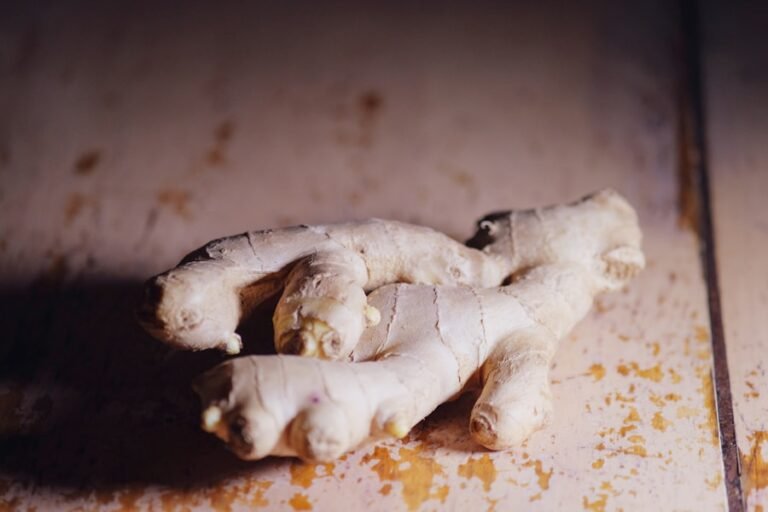The Ultimate Guide to Using Home Remedies to Get Rid of Fleas
Fleas are small, wingless insects that feed on the blood of mammals and birds. They are a common problem for pet owners, as they can easily infest homes and cause discomfort for both pets and humans. Fleas can reproduce quickly, with a single female flea laying up to 50 eggs per day. These eggs can hatch in as little as two days, leading to a rapid infestation if not addressed promptly. Fleas can also transmit diseases and parasites, making it important to take action to eliminate them from your home.
Fleas are often brought into the home by pets, but they can also be carried in on clothing or shoes. Once inside, fleas can quickly spread throughout the home, hiding in carpets, bedding, and furniture. It is important to be vigilant in addressing a flea infestation, as they can be difficult to eradicate once they have taken hold. Understanding the signs of a flea infestation and knowing how to effectively treat it is essential for maintaining a healthy and comfortable living environment.
Identifying Flea Infestations in Your Home
There are several signs that may indicate a flea infestation in your home. One of the most obvious signs is seeing fleas on your pets or in your home. Fleas are small, dark brown insects that are about the size of a sesame seed. They are often found on the fur of pets, especially around the neck and tail. Another sign of a flea infestation is seeing flea dirt, which is the feces of fleas. Flea dirt looks like small black specks and can often be found on pet bedding, carpets, and furniture.
In addition to seeing fleas or flea dirt, you may also notice that your pets are scratching or biting themselves more than usual. This is a common sign of a flea infestation, as the bites of fleas can be very itchy and uncomfortable for pets. If you suspect that your home may have a flea infestation, it is important to thoroughly inspect your pets and their living areas for signs of fleas. Identifying a flea infestation early on can help prevent it from spreading and becoming a larger problem.
Natural Remedies for Treating Fleas on Pets
When it comes to treating fleas on pets, there are several natural remedies that can be effective. One of the most popular natural flea treatments is diatomaceous earth, which is a fine powder made from the fossilized remains of tiny, aquatic organisms called diatoms. Diatomaceous earth can be sprinkled on your pet’s fur and bedding to help kill fleas and their eggs. It works by dehydrating the fleas, causing them to die.
Another natural remedy for treating fleas on pets is apple cider vinegar. This can be diluted with water and sprayed onto your pet’s fur to help repel fleas. Additionally, adding a small amount of apple cider vinegar to your pet’s drinking water can help make their blood less appealing to fleas. Other natural remedies for treating fleas on pets include essential oils such as lavender, peppermint, and eucalyptus, which can be diluted and applied to your pet’s fur to help repel fleas. It is important to use caution when using essential oils on pets, as some can be toxic if ingested or applied in high concentrations.
Home Remedies for Treating Fleas in Your Home
In addition to treating fleas on pets, it is important to address a flea infestation in your home. There are several natural home remedies that can be effective for treating fleas in your living environment. One of the most effective natural remedies for treating fleas in your home is vacuuming. Regular vacuuming can help remove adult fleas, eggs, and larvae from carpets, rugs, and furniture. Be sure to empty the vacuum bag or canister immediately after vacuuming to prevent fleas from re-infesting your home.
Another natural remedy for treating fleas in your home is using a flea comb to physically remove fleas from your pet’s fur. This can be done regularly to help reduce the flea population in your home. Additionally, washing your pet’s bedding and any other fabric items they come into contact with can help eliminate fleas and their eggs. Washing these items in hot water and drying them on high heat can help kill fleas at all stages of their life cycle. Using natural remedies to treat fleas in your home can be an effective and safe way to eliminate these pests from your living environment.
Using Essential Oils to Repel Fleas
Essential oils are a popular natural remedy for repelling fleas from pets and homes. There are several essential oils that are known for their flea-repelling properties, including lavender, peppermint, eucalyptus, and citronella. These essential oils can be diluted with water and applied to your pet’s fur to help repel fleas. Additionally, they can be used to make a natural flea spray for your home by mixing them with water and spraying them on carpets, furniture, and pet bedding.
When using essential oils to repel fleas, it is important to use caution, as some essential oils can be toxic to pets if ingested or applied in high concentrations. It is also important to avoid using essential oils on pets with certain health conditions, such as liver or kidney disease, as they may be more sensitive to the effects of essential oils. When using essential oils to repel fleas, it is best to consult with a veterinarian to ensure that you are using them safely and effectively.
Natural Flea Prevention Methods
Preventing fleas from infesting your home and pets is an important part of maintaining a healthy living environment. There are several natural flea prevention methods that can help reduce the risk of a flea infestation. One of the most effective natural flea prevention methods is keeping your home and pets clean. Regularly vacuuming carpets, rugs, and furniture can help remove flea eggs and larvae from your home. Additionally, washing your pet’s bedding and any other fabric items they come into contact with can help eliminate fleas and their eggs.
Another natural flea prevention method is using a flea comb to regularly check your pet for fleas. This can help you catch a flea infestation early on and prevent it from spreading. Additionally, using natural flea repellents such as essential oils and diatomaceous earth can help keep fleas at bay. It is important to use caution when using these natural flea prevention methods, as some essential oils can be toxic to pets if ingested or applied in high concentrations. Consulting with a veterinarian can help ensure that you are using these methods safely and effectively.
Creating a Flea-Free Environment
Creating a flea-free environment is essential for maintaining a healthy and comfortable living space. There are several steps you can take to create a flea-free environment in your home. One of the most important steps is to regularly clean and vacuum your home to remove flea eggs and larvae from carpets, rugs, and furniture. Additionally, washing your pet’s bedding and any other fabric items they come into contact with can help eliminate fleas and their eggs.
Another important step in creating a flea-free environment is to regularly groom and check your pets for fleas. Using a flea comb to physically remove fleas from your pet’s fur can help reduce the flea population in your home. Additionally, using natural flea repellents such as essential oils and diatomaceous earth can help keep fleas at bay. It is important to use caution when using these natural flea prevention methods, as some essential oils can be toxic to pets if ingested or applied in high concentrations. Creating a flea-free environment is essential for maintaining a healthy and comfortable living space for both pets and humans.
Homemade Flea Sprays and Powders
Homemade flea sprays and powders can be an effective and natural way to repel fleas from pets and homes. There are several homemade flea sprays and powders that can be made using natural ingredients. One popular homemade flea spray is made by mixing apple cider vinegar with water and spraying it onto your pet’s fur. This can help repel fleas and make your pet’s blood less appealing to them. Another homemade flea spray can be made using essential oils such as lavender, peppermint, and eucalyptus, which can be diluted with water and sprayed onto your pet’s fur to help repel fleas.
In addition to homemade flea sprays, there are also homemade flea powders that can be effective for repelling fleas. One popular homemade flea powder is made using diatomaceous earth, which is a fine powder made from the fossilized remains of tiny, aquatic organisms called diatoms. Diatomaceous earth can be sprinkled on your pet’s fur and bedding to help kill fleas and their eggs. It works by dehydrating the fleas, causing them to die. Using homemade flea sprays and powders can be an effective and natural way to repel fleas from pets and homes.
Tips for Maintaining a Flea-Free Home
Maintaining a flea-free home is essential for the health and comfort of both pets and humans. There are several tips for maintaining a flea-free home that can help prevent a flea infestation. One of the most important tips is to regularly clean and vacuum your home to remove flea eggs and larvae from carpets, rugs, and furniture. Additionally, washing your pet’s bedding and any other fabric items they come into contact with can help eliminate fleas and their eggs.
Another important tip for maintaining a flea-free home is to regularly groom and check your pets for fleas. Using a flea comb to physically remove fleas from your pet’s fur can help reduce the flea population in your home. Additionally, using natural flea repellents such as essential oils and diatomaceous earth can help keep fleas at bay. It is important to use caution when using these natural flea prevention methods, as some essential oils can be toxic to pets if ingested or applied in high concentrations. Maintaining a flea-free home is essential for the health and comfort of both pets and humans.
Consulting a Professional for Severe Infestations
In some cases, a flea infestation may be severe and difficult to treat using natural remedies and home treatments. If you have a severe flea infestation in your home, it may be necessary to consult a professional for help. Pest control professionals have the knowledge and experience to effectively treat severe flea infestations and prevent them from recurring. They can also provide guidance on how to prevent future flea infestations and maintain a healthy living environment for both pets and humans.
When consulting a professional for a severe flea infestation, it is important to choose a reputable and experienced pest control company. Be sure to ask about their methods for treating fleas and any potential risks to pets and humans. Additionally, be sure to follow any recommendations for preparing your home for treatment, such as removing pets and covering food and water dishes. Consulting a professional for a severe flea infestation can help ensure that the problem is effectively addressed and that your home remains flea-free in the future.









